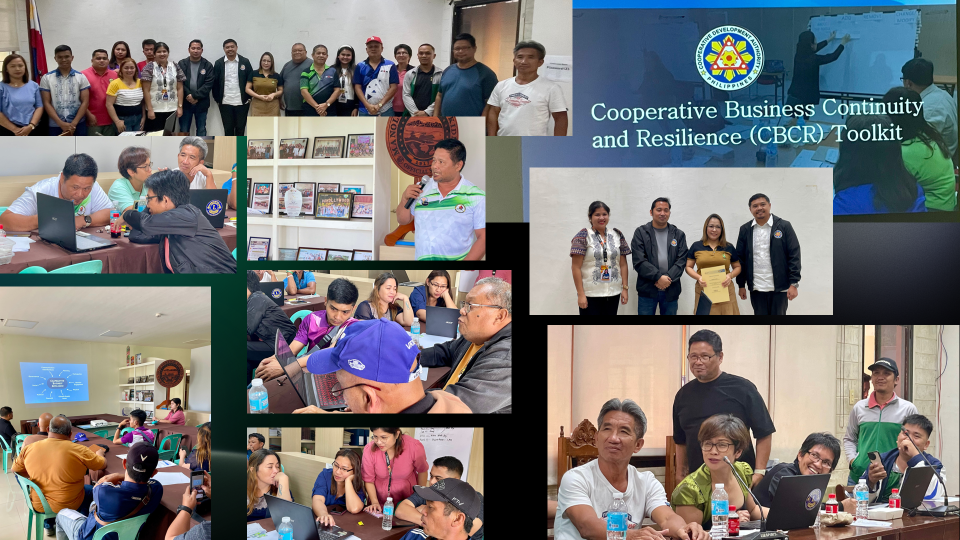In a three-day workshop conducted by the Cooperative Development Authority (CDA) Region 10, five cooperatives of varying classifications from micro to large—successfully completed the pilot testing of the Cooperative Business Continuity and Resilience (CBCR) toolkit. Held at the Manolo Fortich Municipal Hall, the activity was part of the agency’s thrust to build stronger, crisis-ready cooperatives in the region.
Day 1: Cooperatives Self-Assessment
The training commenced with an introduction to the CBCR pilot testing, its purpose, and the importance of business continuity in safeguarding cooperative operations. Using the Self-Assessment Worksheet (Step 1), participating cooperatives were guided through an internal review of their readiness across 10 key resiliency factors such as governance, finance, communication, physical assets and supply risks. Each cooperative scored themselves based on these areas and discussed their findings during a workshop.
The exercise sparked valuable discussions as the cooperatives presented their vulnerabilities, particularly highlighting the unique challenges they face based on their size and sector. Whether it was a micro cooperative with limited emergency protocols or a large cooperative facing market competition, the tool allowed each group to assess where they stand and what needs attention.
Day 2: Action Planning Toward Resilience
The second day focused on the Action Plan Worksheet (Step 2), where cooperatives selected the top three priority areas from their assessment. With guidance from the CBCR facilitators, participants developed actionable plans addressing their most urgent resilience gaps. These plans included assigning accountable officers, setting realistic timelines, and identifying needed resources for improvement.
Each cooperative shared their proposed actions with the group, creating an opportunity for feedback and cross-learning. The collaborative environment encouraged innovation and ownership, with several cooperatives emphasizing their commitment to implement these plans in their respective communities.
Day 3: Monitoring and Program Completion
The final session on April 7 introduced Step 3: the Monitoring Worksheet. Cooperatives were trained on how to track the progress of their action plans using practical monitoring tools. This included identifying key milestones, forming internal monitoring teams and setting timelines for regular reviews. The worksheet was designed to be flexible and usable even by cooperatives with limited digital access.
To close the activity, a simple graduation was held recognizing the 15 cooperative officers and members who completed the CBCR pilot training. Participants expressed their appreciation for CDA’s effort to capacitate cooperatives with practical tools to prepare for unexpected shocks and ensure operational continuity.
The CBCR pilot testing in Manolo Fortich is part of a broader effort by the agency to embed business continuity and resilience in the core functions of cooperatives. As climate risks, economic disruptions, and emergencies continue to challenge the sector, tools like CBCR equip cooperatives with the foresight and structure needed to respond effectively. CDA is optimistic that with continued rollout and support, more cooperatives across the region will be empowered to plan ahead, not just to survive disruptions but to thrive beyond them.







